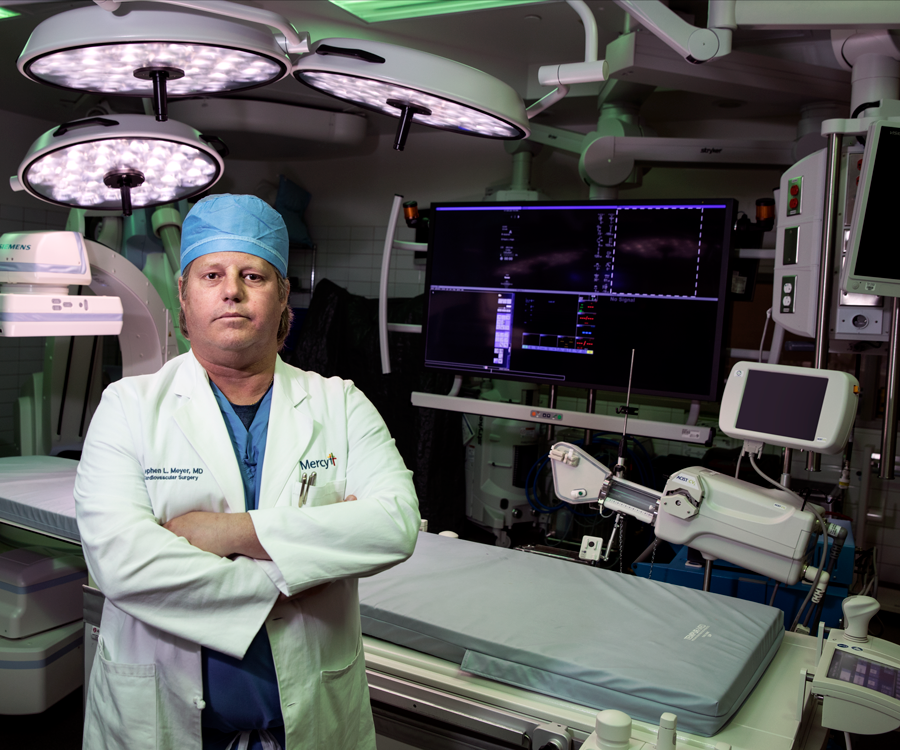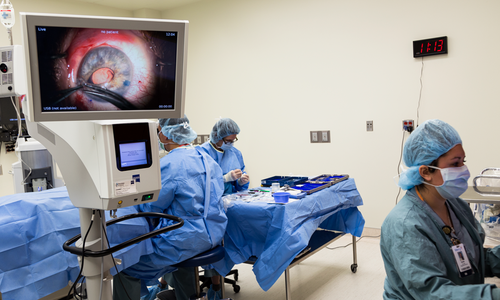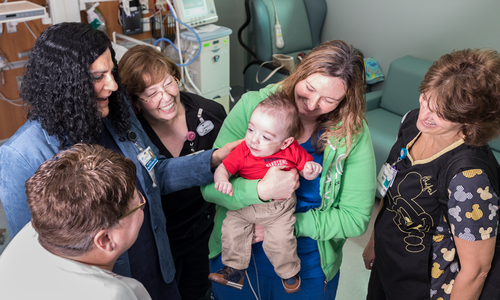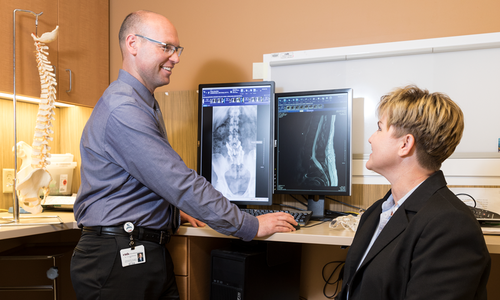Top Doctors
Strength From the Heart
Dr. Stephen Meyer at Mercy Joplin has been treating cardiovascular patients the same way for 18 years: with no room for doubt.
By Rose Marthis
May 2017

Todd Camerer was driving across the country from New England when he started having severe leg pain. Instead of pulling into his own driveway, he drove directly to the Mercy Joplin emergency room. He told the staff about his leg pain, leading them to test for common leg ailments. But Camerer had carotid artery occlusive disease, and the doctors discovered his carotid artery was clogged. That’s when Dr. Stephen Meyer came into the room.
Meyer learned Camerer had also been having mini strokes and quickly scheduled him for a carotid artery surgery in his neck. The surgery was in November 2015 and started Camerer on a path of four operations in 15 months. Camerer admits he was nervous before his first surgery, but Meyer put him at ease. “Every time I saw him, I was scared to death,” Camerer says. “Every time he walked in the room he had this air of confidence. He knew exactly what I had and exactly what he had to do to fix it. I felt confident in his diagnosis.”
During Camerer’s neck surgery, he had a severe reaction to dopamine that caused his heart to fail. Meyer decided to schedule him for a triple bypass surgery. “They got me prepped and gave me a pregame speech,” Camerer says. “[Meyer] still had that confidence and just looks at me and says, ‘We’re going to fix you.’” The standard recovery time after a triple bypass surgery is five to seven days. Meyer visited Camerer on the third day and told him to go home. Camerer remembers his doctor’s tough love. “He said the hard part is done, and you need to go home to heal,” Camerer says. “People want to baby you after surgery and make sure you’re okay. But the way he treats it is you need to be babied before because that’s when you feel bad. After you’re out of surgery you’re fixed.”
Camerer joined his family for Christmas celebrations and even went back to work after a couple of months. But his vascular disease was still causing problems. In February 2016, he went in surgery for stenting in his left leg. At the time his right leg was not significantly simptomatic, but soon Camerer lost feeling below the knee in his right leg. In February 2017, he had his fourth surgery: a femoral bypass in his right leg. Through every surgery, Meyer’s confidence never wavered, which made a big impact on Camerer.
“It’s to the point now that he walks in like a great football coach,” Camerer says. “He wants you to go fight the world. The confidence he has rubs off on you.” Meyer’s confidence comes from 18 years of experience. He learned early in his career that vascular surgery doesn’t always start and end with the heart. “With disease, we may treat one problem, but it doesn’t make the whole problem go away,” Meyer says. This assessment is also true in Camerer’s case. “I still come back every six months to make sure [my arteries] are still flowing,” Camerer says. “I’ll see Dr. Meyer as long as he’s practicing and I’m alive.”












